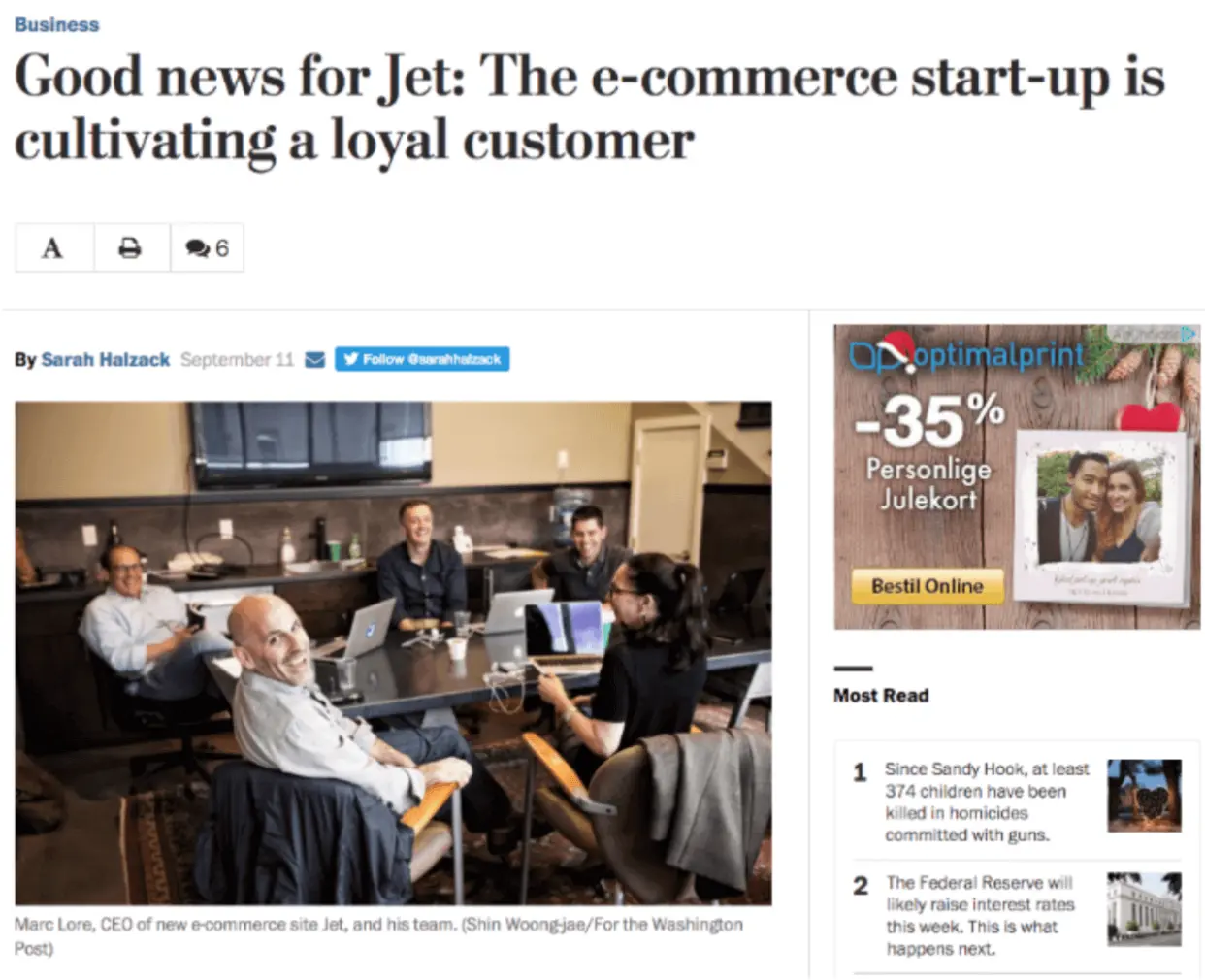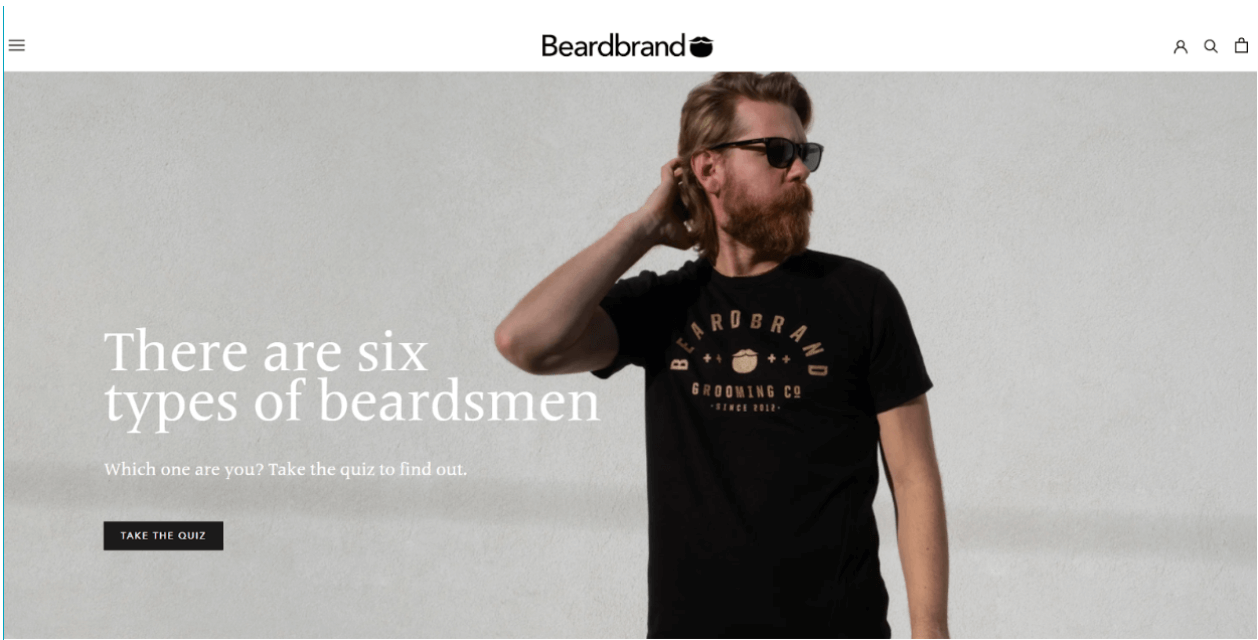Are you thinking about using public relations (PR) as part of your eCommerce marketing strategy but are unsure about the benefits? If so, you've come to the right place.
PR and eCommerce are a match made in heaven and this article focuses on the reasons why eCommerce brands need to care about public relations and use it as part of their sales and marketing strategy.
We will also look at a few examples of eCommerce brands that are performing PR effectively, as well as how you can use PR to increase brand recognition across different channels.
But first, a quick definition of what PR is so we know we’re all on the same page.
What is Public Relations (PR)?
Public relations refers to the art of managing the public reputation of a business through media engagement.
It's an important (yet often overlooked) part of any successful eCommerce marketing strategy.
The aim is to use PR to build relationships with bloggers and media outlets to ensure that they are more likely to report positive (or interesting, educational, etc.) information about your business.
There are many ways to build positive PR from starting a blog on your eCommerce site to highlight the positives you’re doing, engaging in philanthropic or charitable endeavors and highlighting your efforts prominently across your digital marketing channels, developing strategic partnerships with others in your niche to generate positive brand content from other trusted outlets, integrating social proof and OGC into your branding efforts, and much more.
Let’s take a look at a few example of eCommerce brands that are doing public relations right:
Examples of eCommerce Brands That Are Performing PR Effectively
It's clear to see that there are many benefits to having good PR relationships. To help drive the point home, here are a few examples of eCommerce brands that are crushing the PR game.
Example #1: Jet.com
This startup does a great job of attracting the attention of journalists in the industry.
For example, a story published by the company about how the new business was overcoming all the odds to establish itself as Amazon's major competitor gained a lot of attention from readers and journalists.
Eventually, the story was published in the Washington Post which gave the brand even more exposure to new audiences.
Example #2: BeardBrand
This is an example of yet another eCommerce brand that knows how to use PR to its advantage.
The company which produces grooming products was catapulted into massive success when one of the founder’s blog posts on male grooming and beard culture was featured in the New York Times.
Since then, the eCommerce business has been making thousands of dollars in sales every day.
Example #3: Bushwick Kitchen
This brand used PR to generate over $170,000 within its first 12 months. This highly successful eCommerce business only had one product at the time but managed to generate tons of sales thanks to a simple sales page, smart sales copy, and an effective PR approach to kickstart the company’s growth.
The brand’s PR eCommerce strategy was mainly focused on being featured on popular foodie sites like Grub Street, Uncrate, and Kitchn.
Benefits of Using PR As Part of Your eCommerce Marketing Strategy
Now that you've seen how successful eCommerce stores use PR to get more sales, it's time to take a look at some of the main reasons your brand should care about eCommerce PR.
1. eCommerce PR Helps to Increase Brand Recognition
You can use PR to increase brand recognition across different channels by monitoring important statistics after initiating a PR campaign, but you should also be aware of what can create negative PR.
For example, a 2017 study by the Baymard Institute on the reasons for eCommerce cart abandonment showed that 60% abandoned their cart because of the high cost of shipping, taxes, and fees. Of all those people leaving, at least one or two are likely to get on Google or Yelp and leave a bad review, leading to poor PR.
However, by being aware of information such as this and monitoring your own data strategically to understand what is producing bad PR for your particular brand, you will be better able to use that data to discover opportunities to increase reach and boost conversions in your future campaigns.
2. You Can Use PR to Establish Relationships with News Outlets
PR helps eCommerce brands establish relationships with news outlets which can bring a positive focus to the brand. While you can use a professional eCommerce website builder to retain visitors, you will still need some help in the form of PR and branding.
With every effort you make, you have the opportunity to connect with bloggers and journalists who have the power to supercharge your eCommerce marketing campaign when they publish your content to their audiences.
For this strategy to work, you must be friendly with journalists at all times - before and after they cover your story, and even if they cover your competitors - it's still important to maintain healthy relationships for the sake of possible future collaborations.
3. PR Helps You Position Yourself As Brand Worth Talking About
If you can create newsworthy content, you'll make the headlines often which will put your brand in front of broader audiences. However, creating a buzz-worthy digital marketing campaign is easier said than done.
Rarely do blog and social media posts make the headlines, but when they do they quickly go viral.
Furthermore, with the right PR strategy, you'll be able to dominate your industry, increase market share in your niche and get journalists and bloggers excited about covering your eCommerce brand, which means that your digital content will be more likely to be featured on the news.
Take the 2017 #NuggsForCarter movement when @carterjwm asked Wendy’s on Twitter how many retweets were needed to get free chicken nuggets for a year.
Wendy’s could have just ignored this question, but instead, they used it as an opportunity to engage with a loyal customer and generate a viral hashtag that garnered over 3.6 million retweets - nowhere near the desired 18 million but still quite impressive, especially by 2017’s standards.
This story was featured on Forbes, the Ellen DeGeneres Show, and many other outlets. It even won a Shorty Award while garnering over 200,000 new followers for Wendy’s on Twitter.
The more coverage your brand gets, the easier it will be for you to establish itself as an authority in your industry or niche.
How to Perform Effective PR on Different Digital Media Channels
Here are some of the most effective strategies for eCommerce brands to perform effective PR on different digital marketing channels.
1. Help Journalists Create Stories and Build Links
Journalists are always on the lookout for inspirational and interesting stories to use in their publications and media channels and if you can get them to publish your content, you'll attract tons of attention and increase awareness of your eCommerce brand.
A great way to achieve this is to help reporters write compelling stories about your brand so you can get the desired attention for your eCommerce business.
For example, you might check out HARO, short for Help A Reporter Out. This is a platform used by journalists to find the sources they need when writing their news articles.
Sign up as a source and look out for journalists who cover topics related to your industry or niche. You can then offer interesting stories about your business, brand, products, and services.
In addition, there are many other link-building tactics you can use to increase the chance that your pages will land first on Google and catch the attention of journalists who can further expand its reach and build positive PR about that particular piece of content as well as your brand.
2. Guest Post for Niche Blogs That Get Media Attention
Another way to supercharge your PR marketing strategy is to write for niche blogs that get tons of media attention.
All you need to do is search online for relevant blogs, create a quality piece of content that your target readers will find interesting, and submit your content to publish. If it's newsworthy, it will get picked up by the media.
So, for example, if you are a business selling kitchen appliances, you might write interesting recipes for a popular foodie blog and strategically include some of your kitchen appliances to promote them to the blog's audience. This is a relatively low-cost way to market your products.
3. Reach Out to Journalist-Influencers On Social Media
This is an extremely effective PR strategy for eCommerce brands. Why? Because if you fail to engage journalists, it won't matter how amazing your business or products are - you'll find it hard to find people interested in writing about them.
Therefore, before you pitch a journalist, it's always a good idea to first build a relationship with them, and this is something that is best done via social media.
Keep in mind, however, that you should never jump right into a conversation with the journalist or their followers on social media.
First, find the journalists who are interested in developing a relationship with your brand and follow them on social media. You’ll know who they are because they are relatable micro-influencers who cover your niche topics.
Just make sure you’re using the right platform when reaching out to influencers. While some platforms are great for influencer marketing, some are just not worth the investment. Instagram and TikTok are by far the most often used social media platforms for influencer marketing while YouTube is lagging far behind.
Of course, TikTok and Instagram have done a much better job of integrating eCommerce functionality directly into their platforms and allowing brands on Shopify and other eCommerce sites to better market and sell their products compared to YouTube.
However, not all platforms with eCommerce functionality are good for influencer marketing. For example, while Facebook offers many great tools for brands and businesses, the long-form, text-based platform makes influencer marketing for eCommerce much more difficult.
Tag the relevant journalists whenever you find select posts that might interest them and soon you'll be on their radar. Just make sure not to tag everything you come across as this will likely annoy them.
When you can successfully engage journalists on social media, you'll be one step closer to being able to use your content to influence buyer decisions and skyrocket your eCommerce sales.
4. Expand your Brand Presence Into New Channels
A lot of public relations is less about what you’re doing or how well you’re doing it and more about how big your reach is.
If your brand is doing great work but is only able to reach a small niche audience, then PR efforts might only yield a more dedicated following among those who are already dedicated to the brand.
While such re-investment into a brand is a great thing to see, it’s also important to see your brand and eCommerce store growing. One of the best ways to do this is to expand your eCommerce brand presence into new channels.
For example, you can use an online course platform to create eLearning content that compliments your eCommerce brand culture. You could also start a weekly podcast with similar content.
I’ve found that eCommerce brands which create a free podcast are able to greatly expand their presence into new markets. Couple that with paid online courses, and you’re not only expanding your brand but also creating new revenue streams that can yield an ever-growing source of passive income.
Just remember when using content across multiple channels to practice proper channel management. This means understanding how each piece of content fits into different parts of your digital marketing and sales funnels, when it is being used, where it is being used, and how it is being used in each instance.
By knowing these things and strategically managing content across all of your channels, you will be better able to reach your KPIs, expand brand reach, and generate more leads and conversions at your eCommerce site.
Conclusion
This article has outlined the reasons why your brand should care about eCommerce public relations and the steps you can take to perform effective PR on digital media channels.
Use the tips outlined here to start building strong relationships with journalists and bloggers that will help increase awareness, boost sales, and propel your business forward.
Has this article convinced you of the reasons why your eCommerce brand should care about public relations? Share your thoughts below!
BYLINE: Ron Stefanski is a website entrepreneur and marketing professor who has a passion for helping people create and market their own online business. You can learn more from him by visiting OneHourProfessor.com




